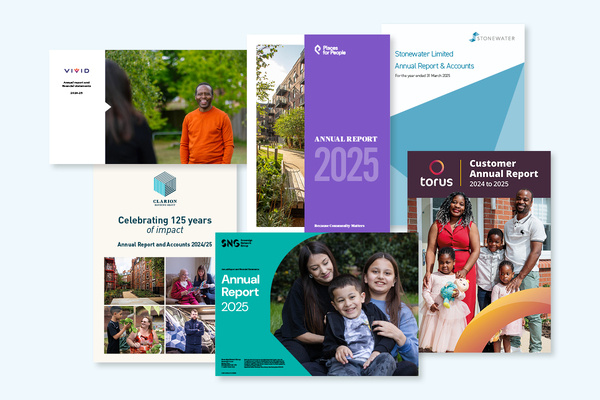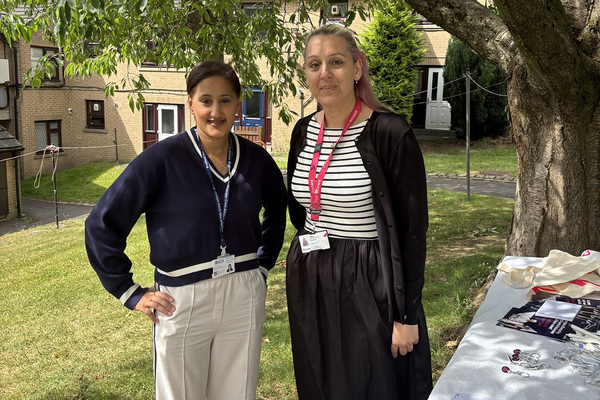You are viewing 1 of your 1 free articles
The landlord named one of the best places to work, seven years in a row
Amid a challenging time for recruitment and retention in the sector, Inside Housing visited social landlord Home Group – rated one of the UK’s best places to work seven years in a row – to find out the secrets of its success. Ellie Brown reports
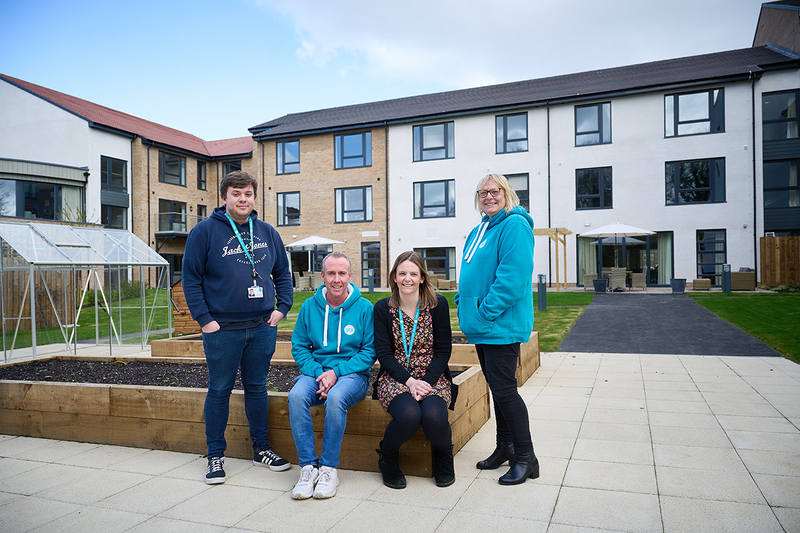
If you work for Home Group, at some point you are likely to see your inbox light up with a link to an electronic card.
It will have a message on it – something like: “Thanks a bunch, you’re awesome.” These cards are not sent by managers, but given by staff members to each other. Last year, Home Group, which employs 3,500 people, had 10,000 moments of recognition through these e-cards, says Vicki Carruthers, the organisation’s director of people, with pride. The culture of appreciation may go some way to explaining why staff at this housing association rate it so highly.
The 56,000-home housing association has been recognised for staff satisfaction (in the super-large organisation category) for seven years in a row through the Great Place To Work certification scheme, which scores brands based on employee surveys.
Home Group is the only housing association to have cracked the top 10 in recent years, ranking alongside household names such as Admiral, Salesforce and Hilton Hotels.
So what can the rest of the sector learn from the housing association about what makes a happy workplace: from policies that promote career development, to tailored support for staff members?
What makes a great place to work?
Getting a good ranking helps Home Group to attract new employees and gives a boost to those already working there, Ms Carruthers says.
However, for her this isn’t the “real reason” why Home Group participates in Great Place To Work certification. Instead, it is to hear from staff members who take the time to answer questions. Their reports are the real value of the survey, she says.
Around four-fifths of the landlord’s employees take part in the annual research.
“You can cut it by directorate, by job role, by demographic, by protected characteristic. So it really gives us a wonderful insight into what we’re doing well and what we need to improve on,” she says.
Inside Housing speaks to Ms Carruthers at the landlord’s head office in Newcastle: three floors in an open-plan co-working space, decked out with colourful chairs. Light floods in through the windows next to the wood-panelled and greenery-filled walls.
Fans of Newcastle United get a direct view out onto St James’ Park football stadium from the top floor. On other floors, the building provides space for voluntary and community groups, as well as being leased to other businesses.
But Home Group’s ranking – and happiness at work – is not just about nice buildings. The surveys for Great Place To Work cover 19 topics ranging from career and development, well-being and innovation, to culture, teamwork, and values and ethics.
Using this feedback, the housing association has made changes that not only improve life for staff members, but help it solve its own challenges, too.
Through the survey, Home Group discovered that there was room to improve on meeting employees’ career aspirations, Ms Carruthers says.
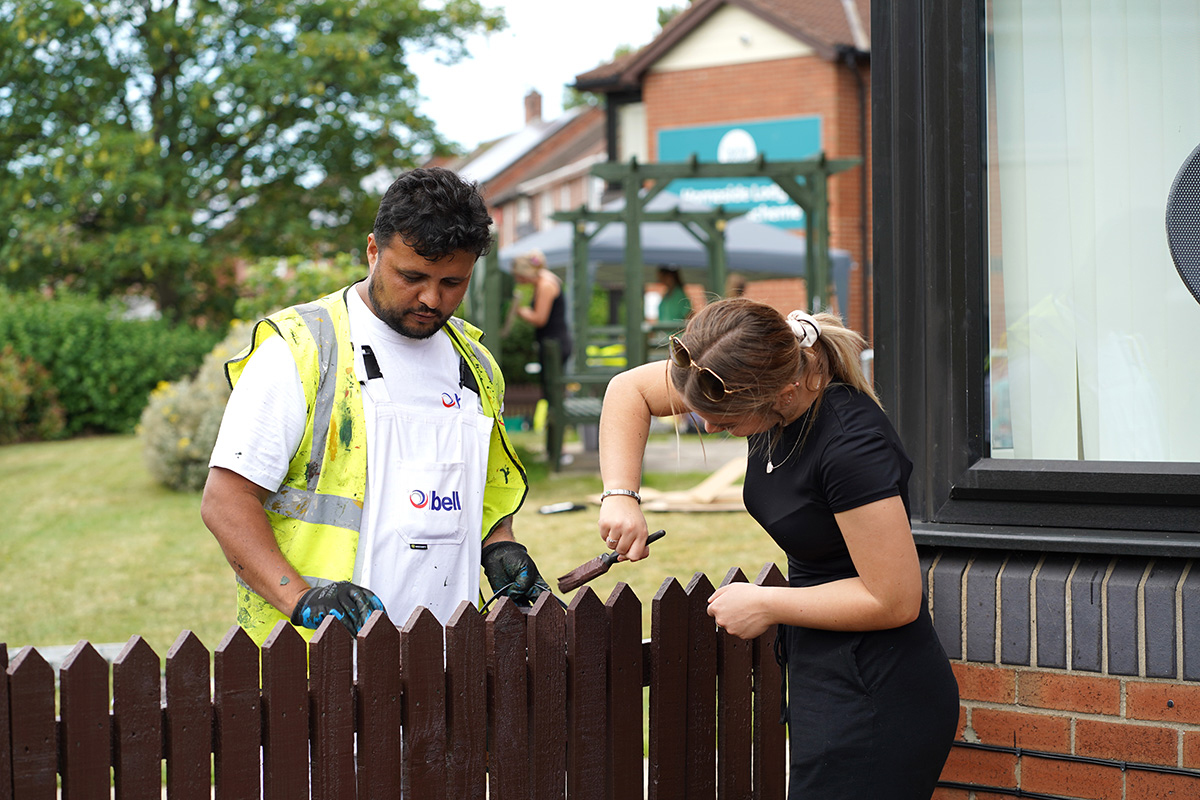
“What colleagues said was, ‘We want to stay here, we love working here, but we don’t always see those obvious career paths, and sometimes, when we do see them, those opportunities are given externally,’” she explains.
The organisation set up its own programme, to nurture its existing talent, called Grow Our Own. This included upskilling a group of career coaches to help support colleagues, developing career paths and hosting virtual career fairs for different areas in the business, and putting together toolkits and templates to help employees with their career journeys.
All staff have had one-to-one chats with their managers to create personal development plans (PDPs); the organisation says these meetings have allowed it to link staff with internal career coaches or for those wanting to move roles, access to mentoring or shadowing. Home Group also changed its recruitment so all roles are advertised internally first and last year filled nearly 40% of its roles through hiring current employees, through Grow Our Own.
Home Group has also used insights from the survey to improve its offer when it comes to staff well-being. There is a “real focus on mind, and psychological safety and psychological well-being”, Ms Carruthers says.
This includes training 140 mental health first-aiders, and ‘me days’, an annual paid day off for staff to do something important such as moving house, being at important events for children or loved ones, and covering for emergencies. These can be taken at short notice as long as it works for the business, Home Group says. Staff can also take two paid volunteering days per year, which can include office workers visiting Home Group’s own services.
Daniel Armstrong works as an assistant procurement category manager at Home Group and has been at the company for three years. He has volunteered at a care home, including taking part in making Easter eggs, visited services for people who have experienced domestic violence, and created hampers for residents.
“Getting an opportunity to go down there was massive. My manager stresses, ‘Go to these places, see the impact, because it is moving,’” he says.
Home Group employees also take part in ‘life swaps’ with customers. This involves having in-depth conversations about their experiences.
Staff members further highlighted a culture of diversity and inclusion. The organisation has scored over 90% in the past three years on EDI&B (equity, diversity, inclusion and belonging) questions. As reports break down the scores by protected characteristics, Home Group has also taken action to address issues such as creating a management programme for colleagues from multicultural backgrounds, which saw almost two-thirds of those who took part progress in their careers. The group has also hired a consultant to advise it on changes that could help support trans colleagues after lower scores were recorded by these staff members.
Home Group has 11 policies and schemes relating to this in place and is certified as a National Equality Standard employer. Home Group focuses on inclusive hiring practices, such as using an app to read out text on screen on its careers pages to help prospective employees with visual impairments. This year, Home Group commissioned a review by accessibility expert Hassell into the user experience of its recruitment website and mobile app; it says the audit has found ‘pain points’ for disabled people and older people, which will help the company make improvements.
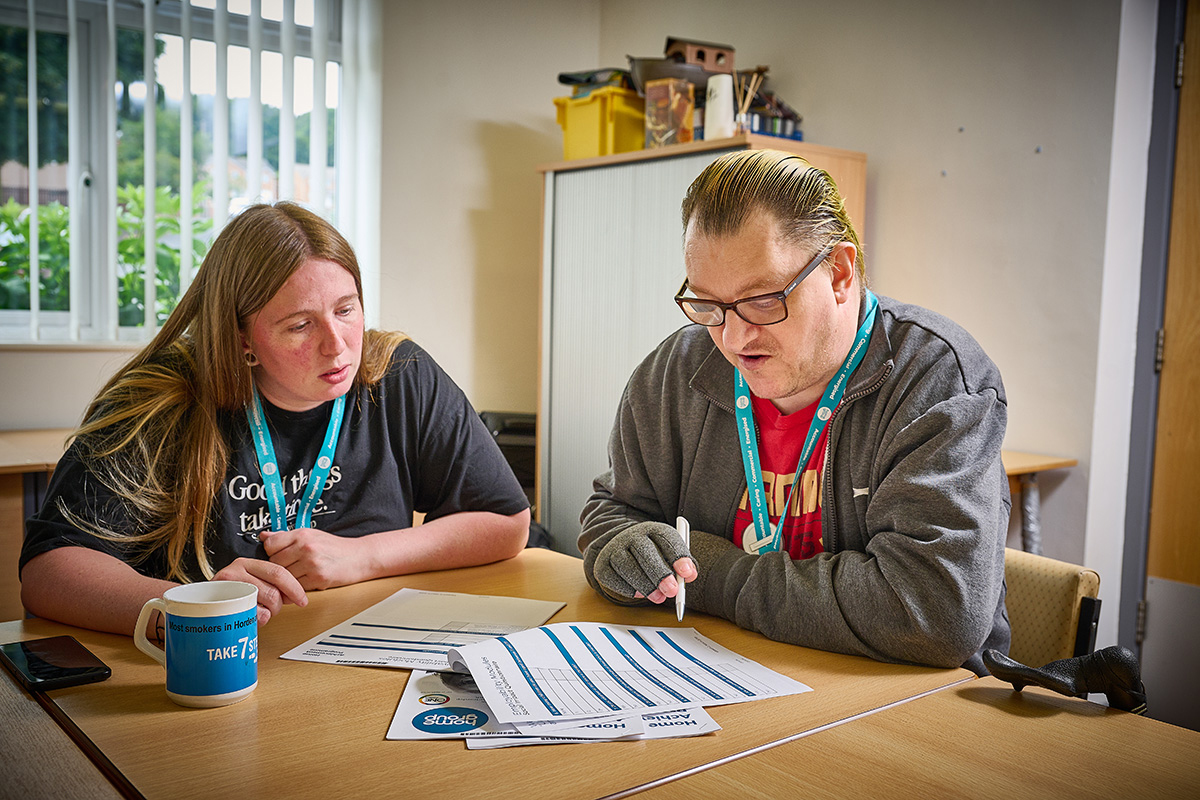
Drew Hardwick, who lives in a Home Group-managed adapted bungalow, took part in an apprenticeship scheme earmarked for residents and works in income management in one of the housing association’s offices. Mr Hardwick, who has diagnoses of autism, dyspraxia and dyslexia, stressed that the adjustments put in by Home Group have allowed him to flourish in the role.
He has received a desk, a fidget spinner to help him when he feels overwhelmed and there are quiet spaces in the office if he gets overwhelmed by bright lights or loud noises. He is given flexibility to work from home if needed – our conversation takes place over Teams due to a recent knee injury.
“The support that Home Group overall, and my team specifically, provide me is really good,” he tells Inside Housing.
He adds that his long-term ambition is to stay at the company because of this. “They’ve actually invested so much in me that, ideally, to stay within Home Group and to utilise that knowledge will be absolutely excellent.”
The culture of inclusion is also one of the things that made Robbie Sinclair, senior housing manager at the landlord, return to work at Home Group after leaving twice for other opportunities.
“I’ve worked in local authorities before, where it’s still very 1970s style,” he says.
“At Home Group, you can see that, even with the way people dress for work, it’s really what equality, diversity, inclusion, belonging is all about. You know, being yourself at work.”
Working out of the patch
Housing management goes beyond the office, however. As spotlighted in Inside Housing’s Housing Management Matters campaign, these roles working with residents can be misunderstood or overlooked, but are vital in supporting tenants and ensuring communities can thrive. Home Group makes sure support is in place for staff members in customer-facing ‘deskless’ roles.
Mr Sinclair’s team spends a lot of time out on the patch with customers, but every Thursday the whole team gets together. These get-togethers offer space for discussion, support and collaboration. Mr Sinclair and his team “will talk about the challenging situation we’ve got, and then somebody else in the team says, ‘Oh, I had that, and I’ll help you’”, he says.
Matt Pattison is the group’s head of maintenance in the North East. “Speaking from experience in my career, the trades often feel a bit like second-class citizens, just because they’re not in an office.
“They’re the ones at the coalface, they’re the ones who get customers who are not always impressed with everything that’s happened in their home, and they get the brunt of that,” he says.
He previously worked for another landlord that organised cake days in the office – but tradespeople couldn’t attend, as they were out on jobs. To maintenance colleagues, it felt like “they’re sitting eating cakes every day and having a cup of coffee, and I’m dealing with digging up a floor in a property”, he says.
At Home Group, the repairs team has a full briefing every quarter, where colleagues, employee champions and trade union representatives can all ask questions.
These conversations have led to improvements. Colleagues’ uniforms were changed to grey and a thinner, more breathable material after feedback suggested people wanted lighter uniforms in hot weather.
And when the teams hit their targets, they were invited in for a bacon sandwich (vegan options were available).
Putting in all this support for staff is not cheap. For example, Home Group has invested £1m into funding its apprenticeship roles, plus further funding into the training and support that is required.
However, Ms Carruthers stresses that the organisation makes sure it is getting value for money.
“On well-being, you can see reduced absence levels. You keep colleagues in work for longer, where potentially they might have had to take time out. And productivity, broadly, is better as a result of what we’re doing,” she says. “Broadly, we’re seeing a consistent decrease in our attrition levels over the years, which is good, and especially in some parts of the organisation, where traditionally you would see high attrition.”
One example? Care services, where Home Group has lower turnover than other providers.
Ms Carruthers admits this work is “not done”. She says it has learned from bringing the repairs service for its properties in-house and will need to keep evolving. The most important change she has seen since Home Group was ranked as a Great Place To Work has been the trust developed throughout the organisation.
“I never take it for granted that our colleagues are trusting us [by giving us] this information,” she says.
Sign up to our Best of In-Depth newsletter
We have recently relaunched our weekly Long Read newsletter as Best of In-Depth. The idea is to bring you a shorter selection of the very best analysis and comment we are publishing each week.
Already have an account? Click here to manage your newsletters.
Latest stories





